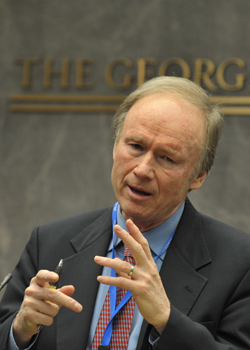Professor David Schwartz has recently posted his paper, co-authored with Lee Petherbridge, on the use of legal scholarship by Federal Courts of Appeals. Here's the abstract:
Chief Justice Roberts recently explained that he does not pay much attention to law review articles, reportedly stating that they are not “particularly helpful for practitioners and judges.” Chief Justice Roberts’s criticism echoes that made by other judges, some of whom, like Judge Harry Edwards, have been much more strident in the contention that legal scholarship is largely unhelpful to practitioners and judges. Perhaps inspired by criticisms like those leveled by Chief Justice Roberts and Judge Edwards, legal scholars have sought to investigate the relevance of legal scholarship to courts and practitioners using a variety of means. One avenue of investigation has been empirical, where several studies, using different, and sometimes ambiguous, methodologies have observed a decrease in citation to legal scholarship and interpreted the observation to mean that legal scholarship has lost relevance to courts and practitioners.
The study reported here examines the hypothesis that legal scholarship has lost relevance to courts. Using an original dataset that is substantially more comprehensive than previous studies and empirical techniques, it examines citation to legal scholarship by the United States circuit courts of appeals over the last 59 years. It finds a rather surprising result. Contrary to the claims of Justice Roberts and Judge Edwards, and contrary to the results of prior studies, this study finds that over the last 59 years – and particularly over the last 20 years – there has been a marked increase in the frequency of citation to legal scholarship in the reported opinions of the circuit courts of appeals. Using empirical and theoretical methods, this study also considers explanations for courts’ increased use of legal scholarship.
Download the paper here.



Leave a Reply